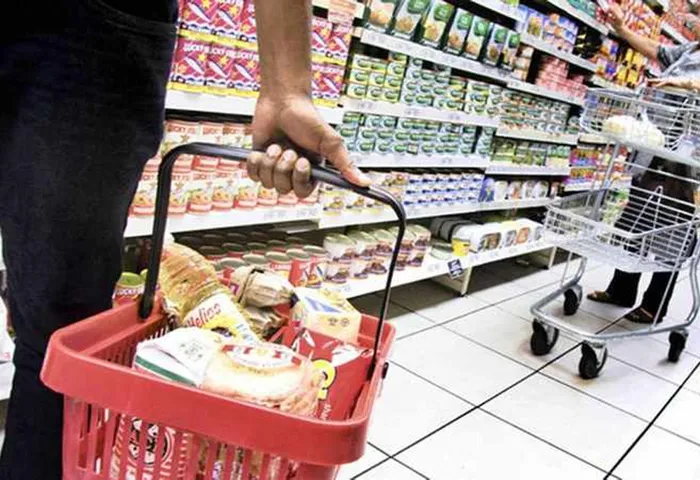Food basket costs edge lower but yearly increase highlights rising hunger crisis
FOOD PRICES

Pietermaritzburg Economic Justice and Dignity Group (PMBEJD) household affordability index for September released on Tuesday indicated a slight decrease of R1.20 (-0.0%), from R5 380.62 in August 2025 to R5 379.42 in September 2025.
Image: File
The average cost of a household food basket dropped marginally in September, but civil society groups have warned that South Africans continue to face rising food insecurity and hunger.
According to the Pietermaritzburg Economic Justice and Dignity Group’s (PMBEJD) Household Affordability Index, released on Tuesday, the basket cost fell by just R1.20 (0.0%), from R5 380.62 in August to R5 379.42 in September.
On a year-on-year basis, however, the index shows a sharp increase of 2.4% or R123.74, up from R5 255.68 in September 2024.
Mervyn Abrahams, director at PMBEJD, said 21 of the 44 tracked food items increased in price last month.
Key hikes of 5% or more included chicken gizzards (5%), beef liver (7%), butternut (13%), green peppers (9%), and bananas (8%). Smaller but notable increases were seen in sugar beans (4%), wors (4%), white and brown bread (2%), and canned beans (4%).
By contrast, prices fell sharply for potatoes (-15%), tomatoes (-11%), carrots (-9%), spinach (-9%), and onions (-7%). Beef, soup, and tea also saw slight declines of around 2%.
Despite the small monthly drop, Evashnee Naidu, regional manager for Black Sash in KwaZulu-Natal, argued it does little to ease household pressure.
“Sadly, this minute decrease will not make any significant impact in the lives of people who are living on social grants or the poorest of the poor, as basic items of the food basket still remain relatively high and force individuals and households to continuously make tough choices about what food they can afford to buy,” she said.
Naidu added that food insecurity was growing in South Africa and food price inflation continued increasing.
“The South African government seems to be unable to bring food prices under control or provide support to those who are struggling. Black Sash amplifies its call for Basic Income Support for those aged 18-59.”
Siyanda Baduza, a researcher with the Basic Income Project at the Institute for Economic Justice (IEJ), said that the month-to-month decrease in the cost of a household budget will be welcome relief for grant-receiving households.
“However, we should note that it is only a marginal decrease of R1.20 from the previous month. More importantly, it represents a significant increase in the cost of the basket from this time last year - a much higher increase of R123.40 - which puts into context how dire the cost of living currently is,” he said.
Baduza added that even worse for grant recipients, while most grants see annual increases to account for inflation, even the highest increases this year are smaller than the increase in the cost of the budget.
“For example, the R120 increase for the Older Persons, Disability, and Care Dependency grants is less than the R123.40 rise in household costs. This means that all grant recipients are worse off now than they were last year,” Baduza said.
“This is particularly concerning in the face of the country's crisis of hunger and food insecurity, which sees one in five households unable to afford the most basic nutritious food basket.”
Aliya Chikte, project officer at the Alternative Information and Development Centre (AIDC), stressed that the modest changes in food prices mask the scale of the crisis.
“The marginal change to the price of food does not erase the brutal reality that one in four people go hungry, over half the population lives in poverty, and a child dies from malnutrition every two days,” Chikte said.
“The low value of the Child Support Grant and the Social Relief of Distress grant means that most grant recipients are not able to meet their minimum energy intake.”
BUSINESS REPORT